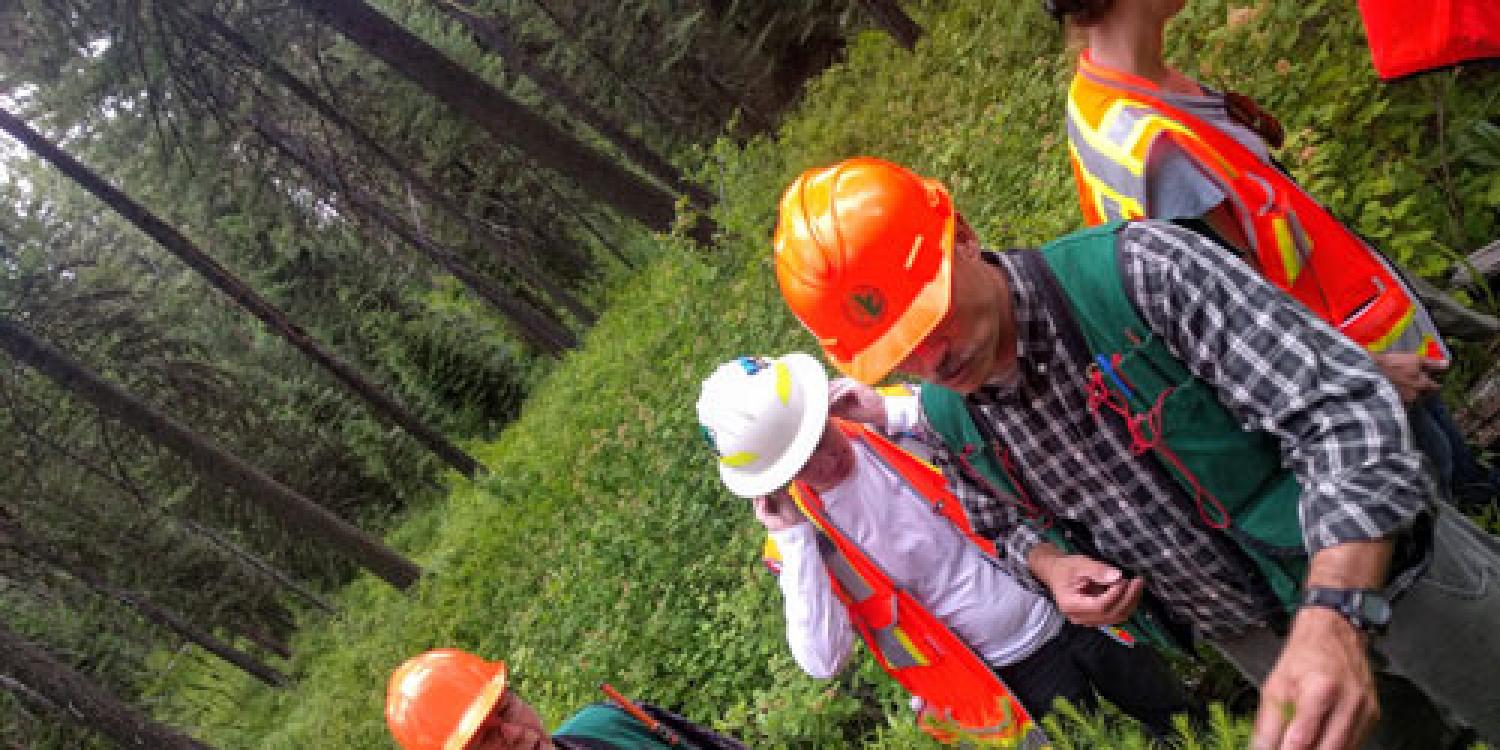
Forest landowners in northeast Oregon face the ramifications of nearly 100 years of fire suppression. Facing marginal timber prices, landowners require financial assistance to carry out much-needed fuels reduction and forest thinning practices on private properties. Much of this assistance comes through the efforts of the U.S. Department of Agriculture Natural Resources Conservation Service working in cooperation with the Oregon Department of Forestry. Accessing this financial aid requires landowners to have current, written forest management plans.
Through collective efforts to prioritize and plan, members of My Blue Mountains Woodland (MBMW) which includes the Oregon State University Extension Service, have secured more than $9 million to complete forest restoration and reduce fire risk.
The partnership connects with private landowners to help them understand the need for forestland fuel reduction, which reduces fire risk and improves forest health. The partners offer educational programs and hands-on training, site visits from professional foresters and other land management experts, and access to financial aid to help get fuels reduction projects completed.
The group is using an online resource called WoodsCamp to connect with landowners who may not be fully engaged in managing their forestlands, to help them learn about their land, identify their personal land management objectives and get matched with tools and services.
Forest restoration efforts have been hindered by an inadequate number of consulting foresters who have the expertise and time to produce written forest management plans. A professionally prepared plan is mandatory before private landowners in the region may receive forest restoration funding from the Natural Resources Conservation Service (NRCS).
To address this issue, OSU Extension foresters, teaming with Alyssa Cudmore of Wallowa Resources and consulting forester Chuck Sarrett, recruited and trained a group of forest technicians to help write basic forest management plans. In conjunction with the Oregon Department of Forestry, NRCS and other agencies, the technicians received 48 hours of specialized training to familiarize them with northeast Oregon forest types and conditions, landowner interaction techniques and management plan requirements and sources of information.
The technicians were provided with customized tools including a streamlined management plan template and a GIS-referenced data collection app, along with reference materials. Following training, they were paired with experienced plan writers who served as mentors while they crafted three training plans each.
Three of the four technicians affiliated themselves with area consulting foresters and assisted them in development of additional plans. As of 2022, each of these three has developed their own constancy and is serving in various consulting forester roles. They continue to develop forest management plans, and as of Dec. 28, 2023, they had completed 241 plans representing 143,683 acres
This training was designed to be accessible to persons at all career stages. As a result, the cadre of successful applicants ended up being young mothers who had left prior natural resource careers to start families. The program structure, which included compact training days, a generous stipend and flexible mentored experiences, provided a mechanism for them to re-enter their career fields.
Landowner feedback has been exceptionally positive, with many references to the plans' concise format, highly visual nature – they include photos showing current and desired stand conditions – and easy-to-understand forest management recommendations. The "basic" forest management plan template developed in this program has been shared broadly and the partners were invited to add it as a resource on the Oregon Forest Management Plan resources website.
“A written forest management plan is an essential tool for family forestland owners – it helps them organize and get the on-the-ground work done to improve forest health, reduce fire risk, and achieve their other objectives,” Punches said. “The MBMW team jumped at the opportunity to build the professional capacity to help landowners obtain plans fitted to their individual stewardship goals, and we were fortunate to recruit an extraordinary cadre of forest technicians. They’ll be a tremendous resource in northeast Oregon for years to come.”
Partners in MBMW in addition to Extension, NRCS, Oregon Department of Forestry and Wallowa Resources include the American Forest Foundation, U.S. Forest Service, Oregon Forest Resources Institute and the Blue Mountains Cohesive Wildfire Strategy.